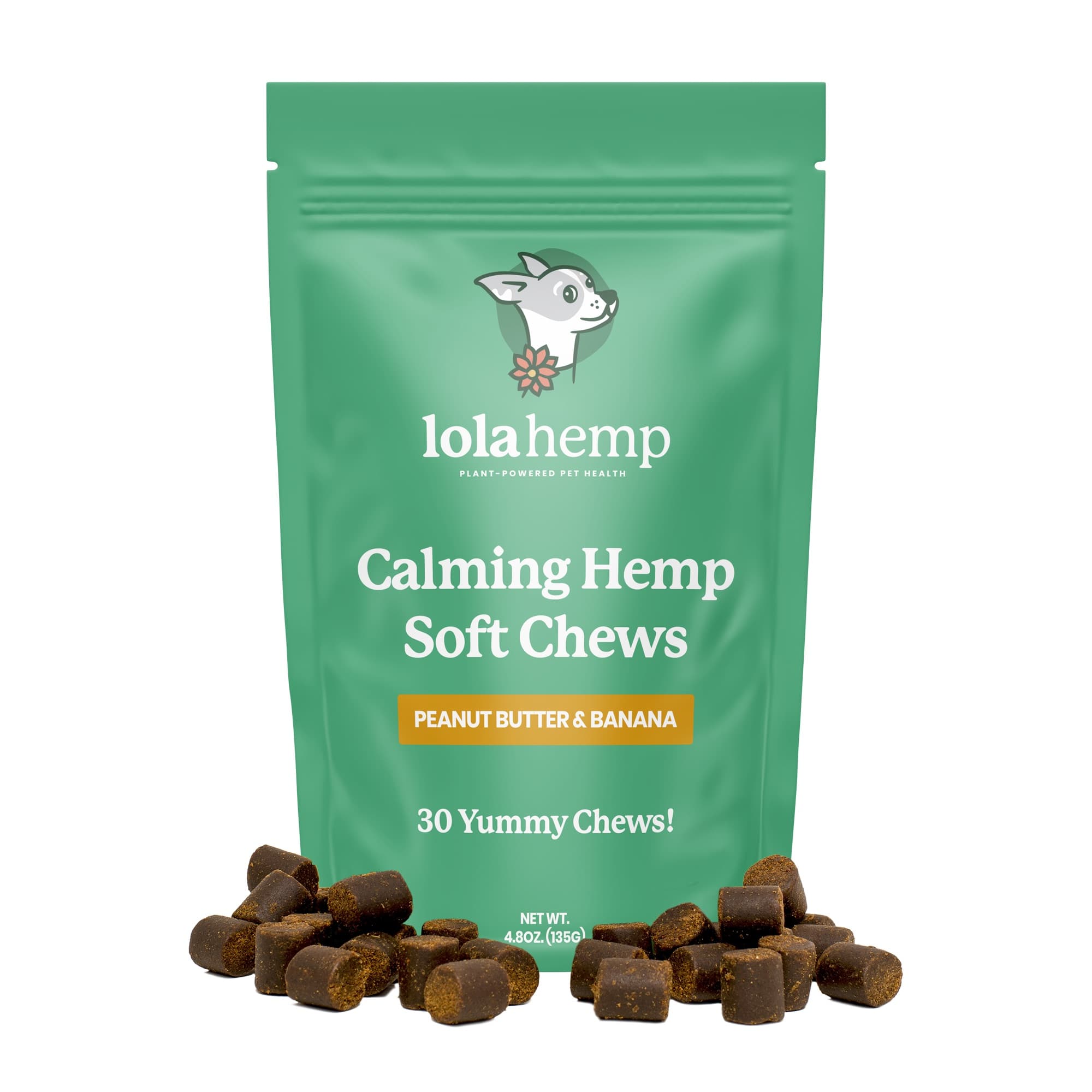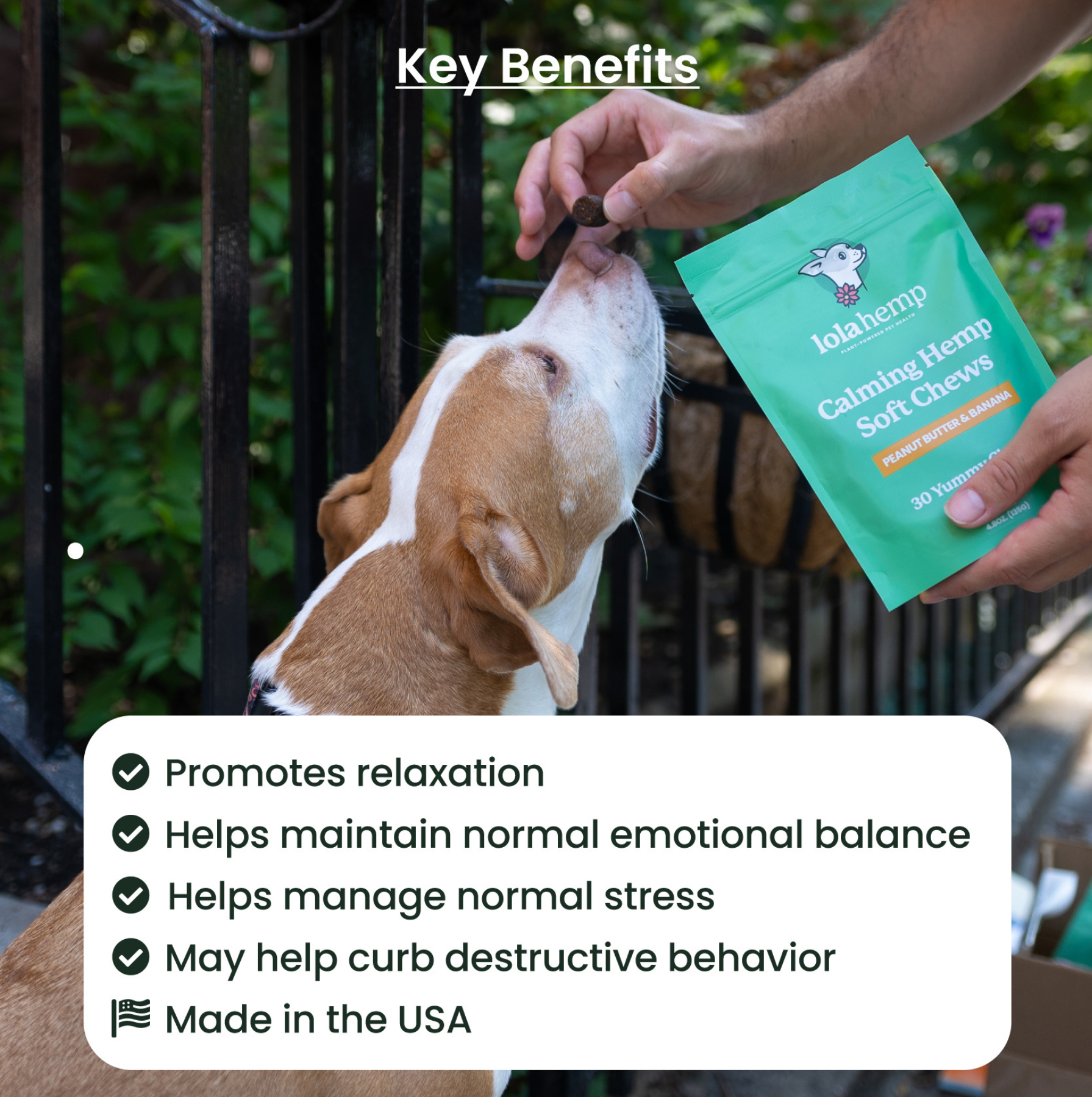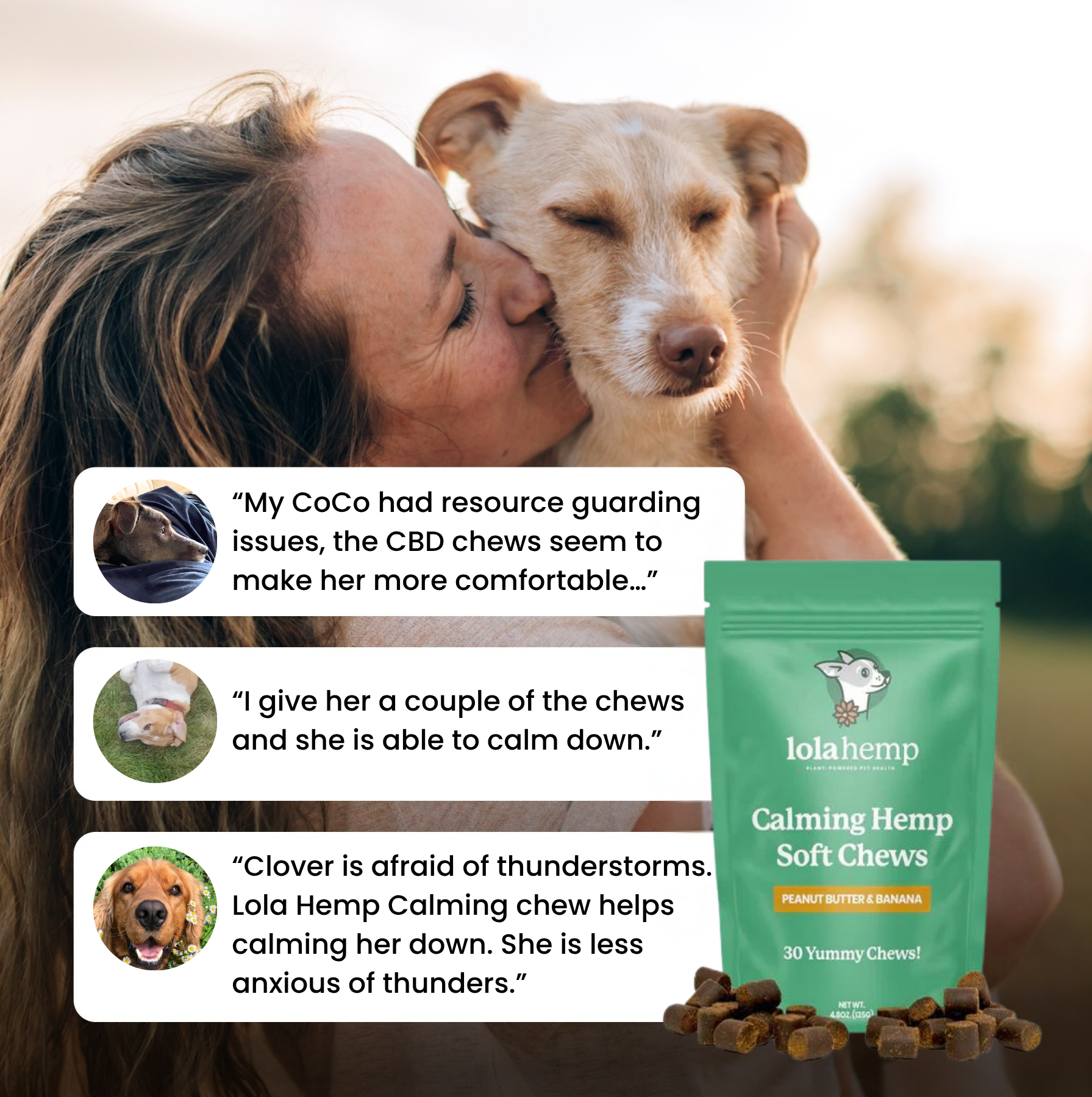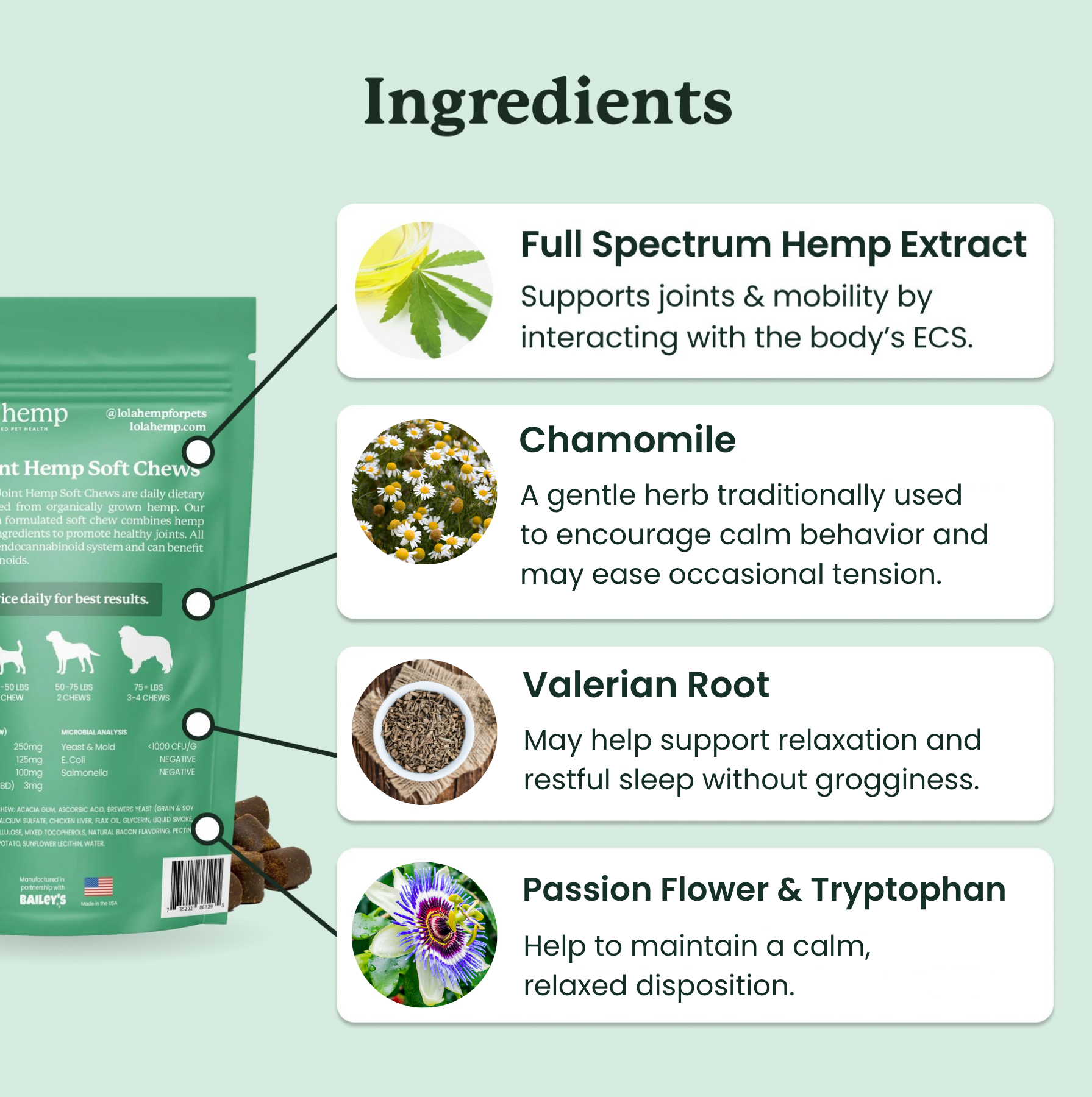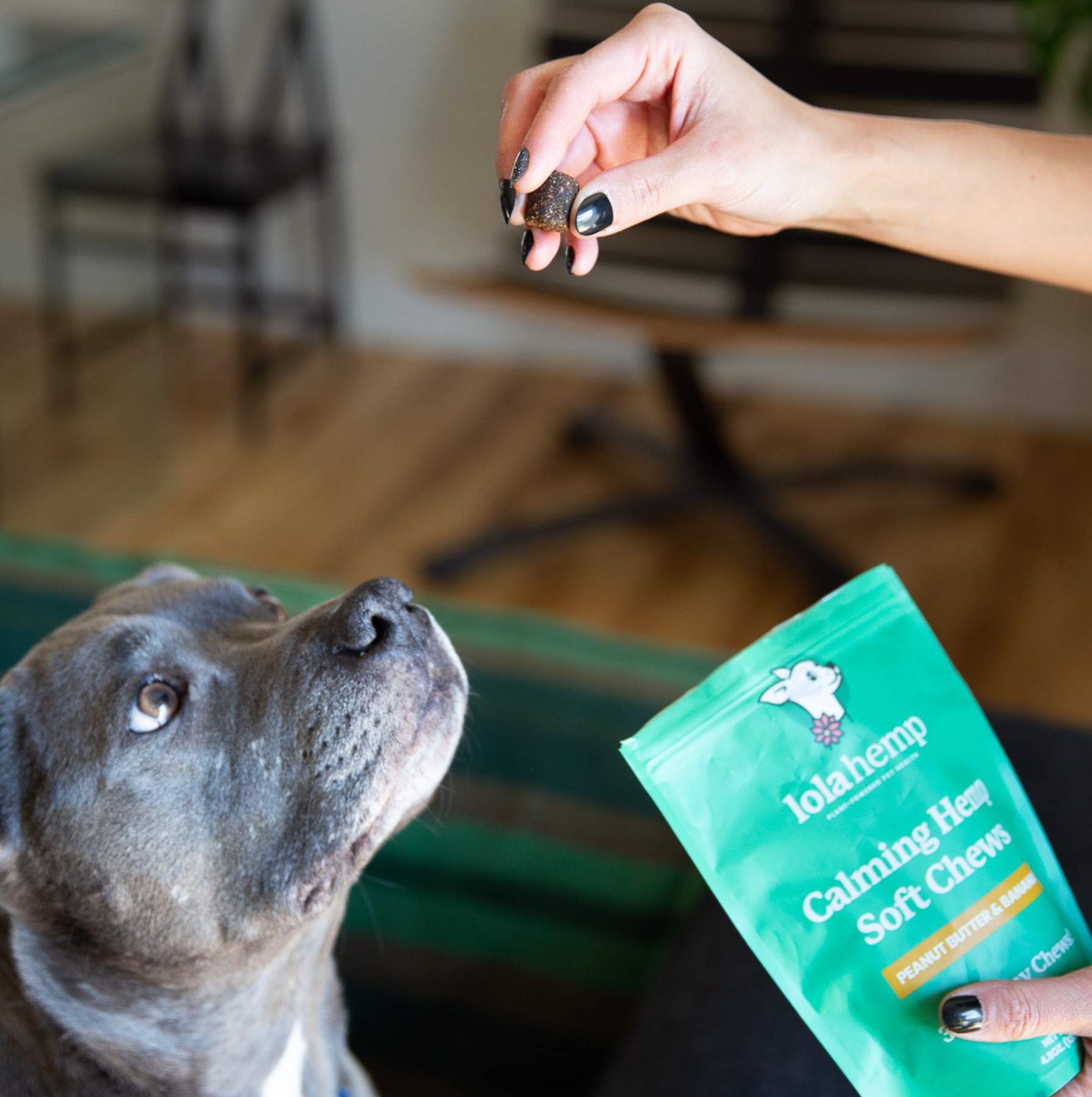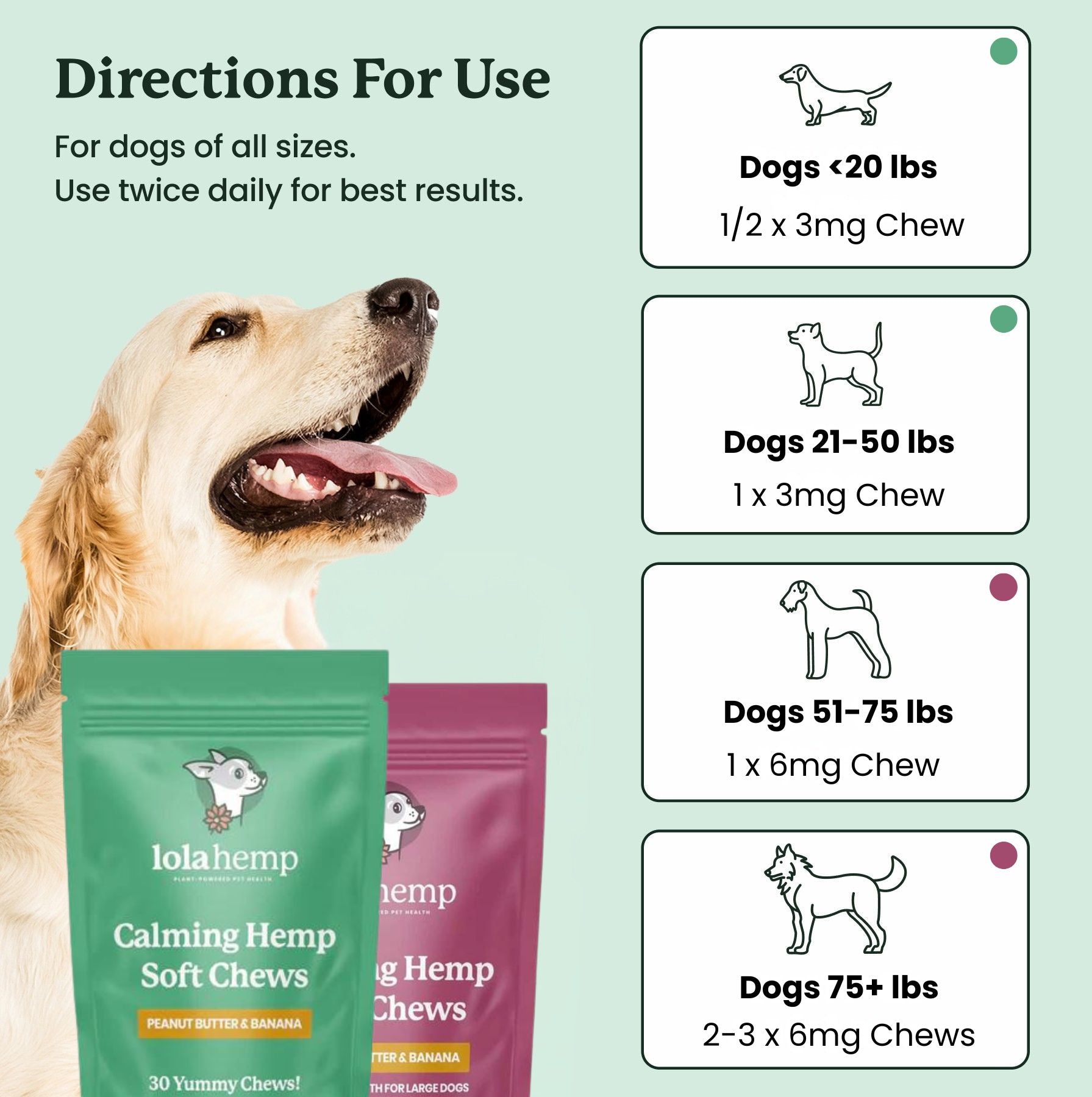Chamomile, a popular herb known for its calming properties, has been used for centuries to promote relaxation and wellness. But is it safe for your furry friend? This guide explores the potential benefits of chamomile for dogs, proper usage, and important considerations to ensure your pet’s health and happiness.
While research on the use of chamomile for dogs is more limited, there is research to support the use of CBD oil for dogs with emotional distress. Now, let's take a look at chamomile and how it could support your canine companion.
Is Chamomile Safe for Dogs?
Chamomile is generally safe for dogs when used appropriately and in moderation. It’s a popular natural remedy known for its calming effects, making it useful for anxiety, upset stomachs, and minor skin irritations. However, it’s essential to consult your veterinarian before introducing chamomile to your dog’s routine, as some dogs may be allergic or sensitive to it.
What Are the Risks of Chamomile for Dogs? While chamomile is safe for most dogs, it can cause adverse reactions in some pets, especially those with existing allergies. Symptoms of a reaction might include vomiting, diarrhea, or skin irritation. Additionally, pregnant dogs should avoid chamomile due to its potential impact on uterine contractions.
As with any herbal remedy, proper dosage is key. Overuse or improper application can lead to unwanted side effects. Always follow veterinary recommendations for safe usage.
Benefits of Chamomile for Dogs
Chamomile has been used as a natural remedy for dogs, offering potential benefits in various situations. Its soothing properties may help calm nervous or anxious dogs, making it a popular choice for promoting relaxation during stressful events like thunderstorms or trips to the vet.
Chamomile is also commonly used to support digestion. It’s thought to ease occasional upset stomachs or minor gastrointestinal discomfort. Additionally, chamomile’s natural properties make it a gentle option for soothing skin irritations when applied topically.
While chamomile offers several potential benefits, always consult your veterinarian to determine the best approach for your dog’s needs. Proper usage and dosage are essential to ensure safety and effectiveness.
Potential Side Effects of Chamomile for Dogs
While chamomile is generally considered safe for dogs when used appropriately, it’s important to be aware of potential side effects. Some dogs may have an allergic reaction to chamomile, leading to symptoms like itching, swelling, or skin irritation. Always test a small amount first to monitor for sensitivity.
Chamomile may also interact with certain medications, so it’s crucial to consult your veterinarian if your dog is on any prescriptions. Overconsumption or improper usage could lead to digestive upset, including vomiting or diarrhea.
To ensure your dog’s safety, always follow recommended guidelines for chamomile use and consult a veterinarian before introducing it into your pet’s routine.
Proper Chamomile Dosage for Dogs
Determining the right dosage of chamomile for your dog depends on factors like their size, weight, and overall health. In most cases, chamomile is used as a tea, diluted oil, or part of a pet-safe supplement. Always start with a small amount to gauge your dog’s tolerance.
For chamomile tea, you can steep a teaspoon of dried chamomile flowers in hot water, let it cool, and offer it to your dog in small quantities—usually a few teaspoons for small dogs or up to half a cup for larger breeds. For topical applications, dilute chamomile oil in water or a carrier oil before use.
Before introducing chamomile to your dog’s routine, consult your veterinarian to ensure it is safe and appropriate for your pet’s specific needs.
Conclusion
Chamomile can be a gentle and natural option to support your dog’s well-being, offering potential benefits for calming, skin care, and digestion. While generally safe in appropriate amounts, it’s essential to consult with your veterinarian before introducing chamomile to your dog’s routine to ensure it suits their specific needs.
Is chamomile a good choice for your dog? With proper guidance, chamomile may provide soothing relief and natural support for your furry friend.
Frequently Asked Questions About Chamomile for Dogs
1. Can dogs drink chamomile tea?
Yes, dogs can drink small amounts of cooled chamomile tea. Always start with a few teaspoons and monitor for any signs of sensitivity or digestive upset.
2. Is chamomile safe for puppies?
Chamomile is generally not recommended for very young puppies unless advised by a veterinarian. Their systems are still developing and may be more sensitive to herbs.
3. Can chamomile help dogs with anxiety?
Yes, chamomile’s natural calming effects may help reduce mild anxiety and restlessness. It can be especially helpful before stressful events like thunderstorms or vet visits.
4. Can chamomile be used on a dog’s skin?
Yes, diluted chamomile tea or oil can be applied to soothe minor skin irritations. Always test a small patch first and avoid open wounds.
5. Are there dogs that should avoid chamomile?
Yes. Pregnant dogs, dogs with plant allergies, or those on medications should avoid chamomile unless approved by a veterinarian.


